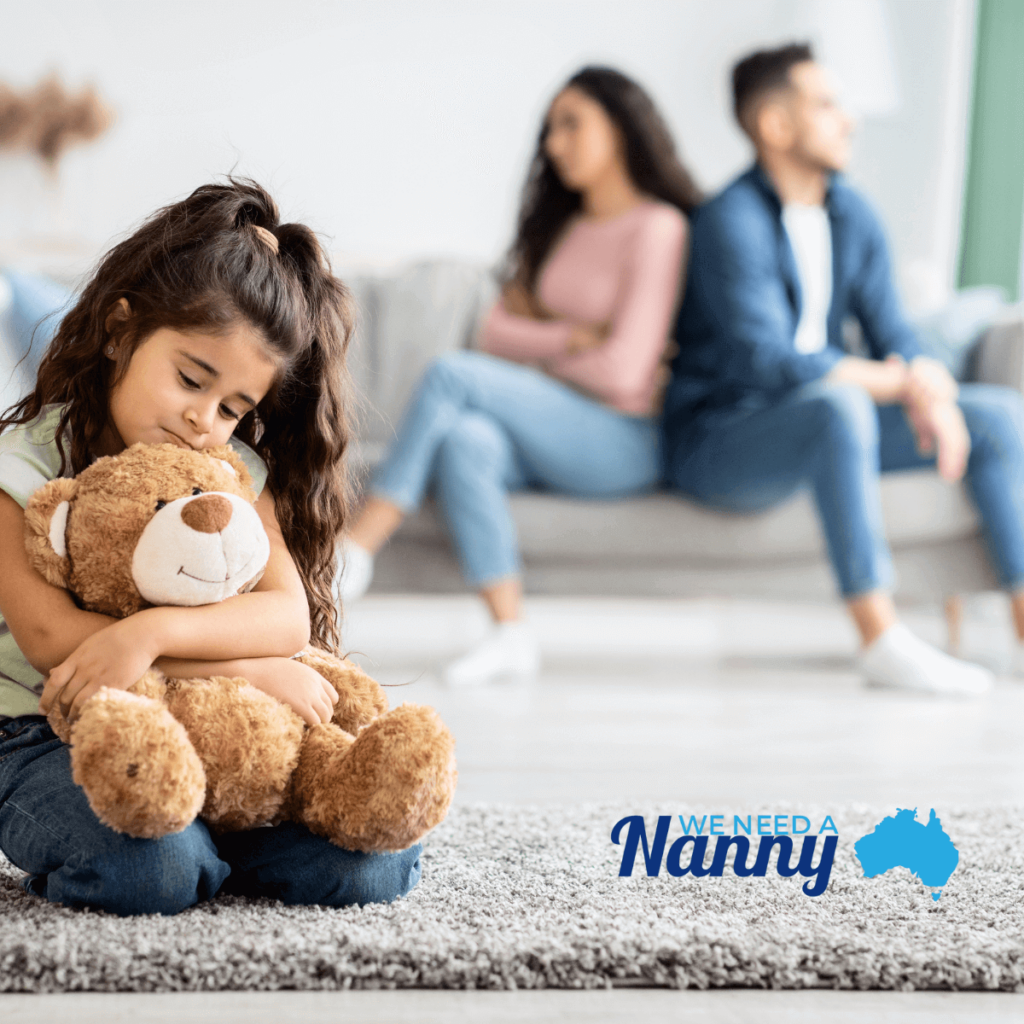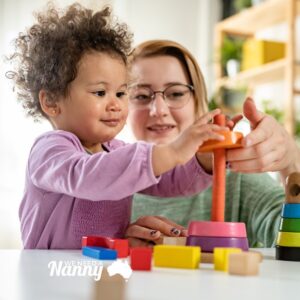With so many aspects and challenges involved during separation or divorce, there are a range of ways children can be affected. Thus, it is vital to ensure that parenting after separation is stable and supportive to guide children through this transition.
Understanding the Impact of Separation on Children
Separation or divorce in the family will impact children emotionally and psychologically. Parents need to understand how separation and divorce in families can affect their children so that they can provide the necessary support.
Emotional Stress
Children will experience various emotions, from sadness to anger and frustration. Often children can blame themselves for the divorce. There may be some evident changes in how children adjust their behaviour as they struggle to express their feelings.
Difficulties at School
Divorce or separation often affects a child’s ability to concentrate and perform well at school. There may be a decline in their academic performance. Children may similarly find it hard to complete homework or assignments. Emotional stress could also cause issues at school such as a child acting out or withdrawing.
Changes in Social Relationships
Children have difficulty adjusting to changes, especially in social relationships, after their parents separate or split up. They may feel ashamed or embarrassed about their parent’s break up and cannot decide whether to withdraw from friends or social activities. Children under emotional stress may similarly not be in the mood to mingle with friends or be unable to participate in social activities.
Increased Responsibility
Many children often end up dealing with increased responsibilities at home after separation. As a single parent, it can become difficult to manage all the childcare and household duties, especially while needing to work. Thus, single parents lean on older children to help with siblings. Children may also be required to support parents to take on more household chores.
By recognising these impacts on your child’s life, you can provide the necessary support and resources to help your child through the challenges of separation or divorce.
Preparing Your Child for Separation or Divorce
Divorce or separation has a significant effect on children, and parenting after separation can become more complex than it was before. The change will pose both physical and emotional challenges for a child, thus preparing them is crucial to help them navigate and deal with these changes
- Firstly, you must have an open and honest conversation with your child. Explain the situation in an age-appropriate language to your child. Always reassure them that the separation is not their fault and that both parents still love them.
- Provide emotional acceptance and support. Accept and allow your child to cry, be angry or frustrated. Assure them that their emotions are valid and encourage them to express their emotions.
- Try to maintain your family routine. It is vital to keep things unchanged as much as possible. Keep their daily schedule as consistent as possible and try to provide a sense of stability throughout this difficult time.
- Seek professional help if it is needed. If you find that you or your child are struggling emotionally, consider counselling or therapy to provide additional support.
Parenting After Separation – What is Best for the Child
The question will often arise among parents that are separating. What will be best for the children?
It is vital for both parents to prioritise the well-being of their children and maintain a healthy co-parenting relationship no matter how difficult the situation is.
When it comes to determining what is best for a child of divorced parents, the key is to prioritise their well-being and maintain a healthy co-parenting relationship.
So, what do children essentially need from their separated parents:
A Stable Loving Relationship
Children thrive when they have stability and a loving relationship with both their parents. Parents need to put aside their differences and foster a positive relationship with their children.
Consistency
Children thrive on routine and consistent rules. Consistent routines maintain their stability and focus on predictability. It helps children feel secure and more easily adjust to changes brought on by a separation.
Open Communication
Co-parents must always communicate respectively with each other, especially in front of children. Children should not be part of any conflict between co-parents. Similarly, constant and clear communication, as well as strategies such as active listening, is essential when dealing with your children.
Minimal Conflict
Prevent any conflict between yourself and an ex-partner in front of children. They quickly feel tension and conflict. Never place them in the middle of a disagreement. Parents from both sides must place their children’s needs above their own, and resolve their own conflicts privately.
Children need a supportive and nurturing environment even more after a divorce or separation.
One of the best strategies and methods to ensure that both parents act in the best interests of the children is to set up a co-parenting plan.
Creating a Co-Parenting Plan for Parenting After Separation
One of the essential steps in co-parenting after divorce or separation is to create a co-parenting plan. The plan serves as a roadmap for how you and your ex-partner will share parenting responsibilities and make decisions regarding the children. It is a vital step preceding any separation or divorce to ensure that both parents stay involved in the lives of their children.
Here are a few steps to add to a Co-Parent plan:
Custody Schedule
Start by outlining a custody schedule for both parents. Take the child’s needs and requirements into consideration first. Ensure that both parents are allowed to attend and see children during holidays and weekends. The party not cohabitating with the children will usually require every second weekend and every alternative school holiday to attend and spend with the children. However, you and your former partner or ex-partner can arrive at a mutually beneficial arrangement.
Define the Roles and Responsibilities of Both Parents
Each parent must have specified roles and obligations, and each party has a financial obligation toward the children.
Communication Guidelines
Communication between the children and the parent they are not cohabitating with is vital. Clear communication schedules and regimes must be implemented to allow the other party to speak to the children. Communication will usually be by mobile or video where separated parents do not live in proximity. Other than that, there must be clear communication between both separated parents, regarding the children.
Special Agreements or Considerations
Consider whether there will be any other special arrangements. Rules such as introducing new partners to the children, or how to handle emergency situations in terms of the children, or where a certain parent cannot be present.
By creating a comprehensive parenting plan, you can minimise conflicts and ensure that both parents are on the same page when it comes to raising your child.
Helping Your Children to Deal with Separation and Divorce
Separation and divorce will impact your children in several ways. It may cause emotional strain or even psychological issues. It is vital to nurture and encourage them throughout the process and ensure that their feelings are addressed when parents separate.
- Always remind your children that they are loved by both parents and families no matter what happens.
- Be honest when you talk about the divorce or separation, keeping in mind what is age-appropriate.
- Avoid playing the blame game. Never blame the other party or share your negative feelings about them with the children.
- Keep up healthy routines, and keep everything as unchanged as possible.
- Assure your children that they are allowed to feel whatever they are feeling and that they should talk to you about it.
- Listen to your children and provide the time and space for them to open up to you.
Separation or divorce often leaves children and parents with many questions and fears. It is a painful process for both parties, leaving children somewhere in the middle of it all. Children undergo many emotions and must adapt to difficult changes.
There are many unanswered questions around the subject of children involved in a separation or divorce, so we have tried our best to answer a few of them for you:
At what age is a child most affected by divorce
The impact of divorce on a child can vary depending on their age and developmental stage. While divorce can be challenging for children of all ages, there are certain ages where they may be more affected. Usually between 2-5 years where they do not fully understand the concept, resulting in regressive behaviours such as bed wetting, or separation anxiety.
From 6 to 12 years, they have a better understanding though they still experience sadness, guilt, or anxiety. Often at this age school work may be affected.
Teens between 13 -18 have a much better comprehension. However, they may still act out with anger, resentment, and confusion. They often exhibit rebellious behaviours. Age-appropriate support is vital for your child throughout the entire divorce or separation process.
How to reconnect with your child after separation
After the separation or divorce process, it is essential for both parents to stay connected in a close relationship with their children. However, often one of the parents may become distant or less connected because of new living arrangements.
The other parent may live in another city or state or not be able to see the children as often. Connection is crucial, however, and these tips will help you establish a better relationship with your children after separation.
- Always spend quality time with the children. Engage in activities they enjoy.
- Listen actively and show a genuine interest in learning about your children’s thoughts and feelings.
- Respect their feelings and validate their emotions, do not dismiss their concerns, or minimise their experiences.
- Be patient and understanding, and allow them to set the pace of your relationship.
Establishing Clear Communication Channels with Your Co-Parent
It is crucial to have a clear communication path with the co-parent for the best interests of the child. Both the primary caregiver and secondary caregiver or the other parent of the child need to establish good communication channels. The parents must decide on a communication method that works well for both parties, such as phone calls, emails, or a co-parenting app.
The conversations must be focused on the child only, and not revert to personal matters; Language must be kept respectful and in a respectful tone. It is helpful to share a calendar of all important events pertaining to the children. If necessary, co-parenting counselling may also be a good choice, especially for parents struggling with communication or co-parenting.
Is there a Separation Program for Parents
Seeking professional help such as a Separation program for parents can help with parenting after separation. There are many resources available to help you through this challenging time. When parents are no longer together, they benefit from support programs focusing on co-parenting and communication for the sake of their children.
The programs are designed to help parents navigate the challenges of separation parenting and conflict. It allows them to stay focused on the needs of their kids.
Often single parents have a hard time adapting and caring for children on their own. In this case, they may refer to hiring a suitable nanny. Hiring a nanny provides additional support for both the parents and the children.
By participating in the separation parenting courses online, parents learn strategies to deal with emotions, conflict and disagreements and how to create a more suitable environment in which their kids can thrive.
In conclusion, successful co-parenting after separation requires dedicated effort, effective communication, and prioritising the well-being of each person and of course your child. By implementing these strategies and seeking support when needed, you can create a positive and nurturing environment for your child to thrive.










